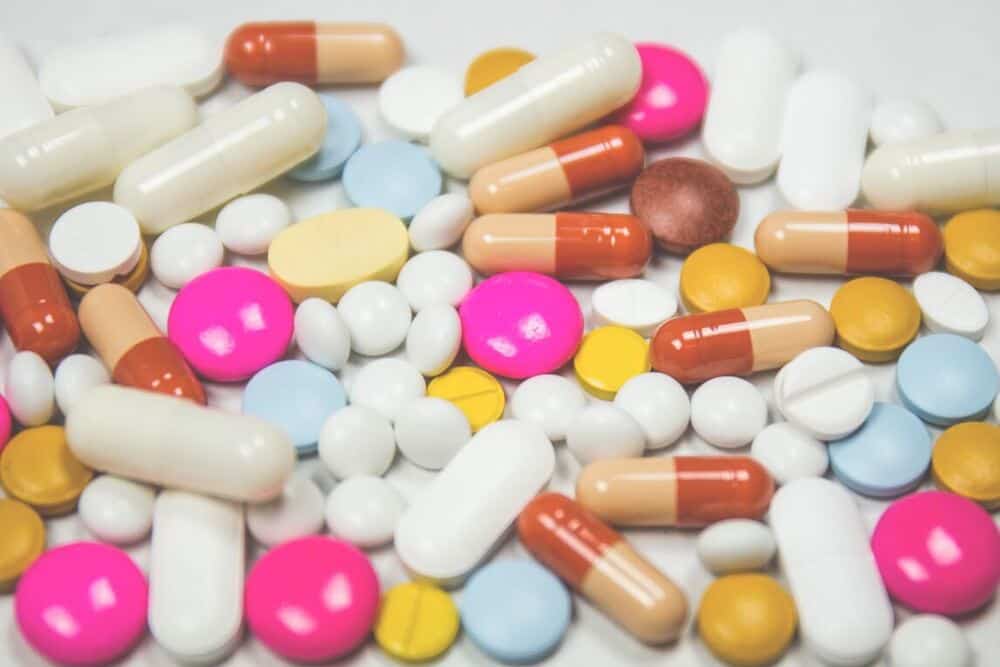How Do People Become Addicted to Barbiturates?
Barbiturate addiction can befall nearly anyone who uses drugs. Youth experimenting with drugs, professionals hoping to relieve stress and insomniacs who use them as a sleep aid are all susceptible to addiction. In which cases, addiction treatment can help.
Those who use barbiturates can build up a tolerance for the drug over time even when used as directed. This requires higher dosages of the drug to achieve the same effects. Physicians will usually increase the dose accordingly. As the body adapts to the higher dosages, the person may develop a physical dependency. The danger arising from barbiturate use stems from the narrow divide between therapeutic use and toxicity. The difference between the amount of the drug that produces sedative effects and the amount that can result in death is small. The probability of barbiturate overdose increases significantly when they are used in combination with alcohol, opiates, hydrocodone, or oxycodone.
Although no specific cause of barbiturate addiction has been identified, a number of factors have been found to increase the probability of addiction. Genetic factors such as a family member who engages in substance abuse increase the risk that an individual will develop an addiction. Some people are born with insufficient amounts of the neurotransmitter dopamine that is responsible for pleasurable experiences. This may lead to substance abuse to correct the deficiency. Those who have psychological problems are also at greater risk.
What Are Barbiturates?
Barbiturates are drugs that belong to the depressant or sedative category. They sedate, or slow down, the central nervous system (CNS) functions and they provide a calming effect to those who use them. Barbiturates are synthetic drugs that are often prescribed to treat various conditions, including epilepsy, insomnia, anxiety, and epilepsy. Some common types of barbiturate prescription drugs are Brevital, Amytal, and Butisol.
These substances are, again, prescribed to help people who are in need of the calming effects barbiturates offer. But, these drugs can be highly addictive as they often produce pleasurable effects, including euphoria and overall relaxation. People who use them regularly may become dependent on them and start to abuse them, using them more than recommended. Some people may obtain these drugs illegally since they’re sold on the streets, too. Barbiturate street drugs may be referred to as “downers”, “yellow jackets”, “blue devil”, and more. But, no matter what form they are in or why they are being used (medicinally or recreationally), these drugs can be dangerously addictive and lead to some serious problems.
Barbiturate Abuse and Addiction
After using and abusing barbiturates for a while, people may begin to develop an addiction to these drugs. Some common signs and symptoms of barbiturate addiction are:
- Lethargy
- Irritability
- Depression
- “Doctor shopping”
- Inability to focus
- Impaired judgment
- Nausea and vomiting
- Trouble with coordination
- Slurred or incoherent speech
It’s important to end barbiturate abuse as soon as possible because individuals who use these substances may suffer from overdose if they don’t get the help they need right away. In many cases, barbiturate overdoses are fatal.
Barbiturates Withdrawal Symptoms
Those who are addicted to barbiturates will typically begin to experience withdrawal symptoms within 8 to 16 hours of terminating drug use. Barbiturate withdrawal can last up to 15 days and is often extremely severe. Medical attention is essential for those who are experiencing barbiturates withdrawal. It requires careful supervision by trained medical professionals. Barbiturates withdrawal symptoms may include:
- Tremors and shakiness
- Insomnia
- Agitation
- Hallucinations
- Violent behavior
- Extremely high body temperature
- Seizures
- Respiratory depression
- Respiratory arrest
- Coma
- Death
Treatment for Barbiturate Withdrawals
Treatment for barbiturate withdrawals should take place in an inpatient facility. The dosage of the drug is gradually decreased until the patient can terminate use. It is critical that patients are monitored closely during withdrawal from barbiturates. A sudden cessation of drug use may result in death.
The first step in recovering from barbiturate addiction is detox. Afterward, many patients still struggle with psychological dependence on the drug. Following detox, patients undergo counseling and education to learn positive behaviors to support a drug-free lifestyle. Treatment programs also address the underlying causes of the addiction such as depression, anxiety or low self-esteem.
Patients in barbiturate withdrawal treatment programs receive support from medical professionals, counselors, and other patients. They are taught the skills necessary to avoid relapse and retain sobriety. Many programs employ a 12 step program to assist users in remaining drug-free.
Northbound Treatment Services has more than 25 years of experience in helping those with prescription drug addictions regain control of their lives. They understand that no two individuals are the same and offer customized treatment plans to meet each patient’s needs. Northbound treats drug addictions as well as underlying causes such as co-occurring mental illnesses simultaneously. A variety of therapies and classes provide patients with coping and daily living skills to help them return to being productive members of society.
If you or someone you know has developed a barbiturate dependence or addiction problem, it’s not too late to get help. You don’t have to end substance abuse alone. In fact, it’s best to go through barbiturates withdrawal with help and guidance from medical professionals who understand the process. Detoxing can be difficult, especially when the symptoms of withdrawal become intense. But, a professional treatment service can help to make your barbiturates withdrawal process more comfortable and much safer.
Here at Northbound, we provide our clients with the resources they need in order to successfully and totally recover from substance dependence in their lives. We offer various therapy approaches, including cognitive behavioral therapy (CBT) and dialectical behavioral therapy (DBT). Our clients can also take part in different types of group therapy in order to build strong bonds and relationships with like-minded individuals who are also working to overcome addiction. Often, people who are suffering from addiction struggle to maintain healthy relationships with others. They may have difficulty connecting with the people in their lives. Some may become emotionally and socially withdrawn because of their addiction problems. This isolation can actually make addiction worse for people. That’s why it’s so important for treatment to address every area of life, bringing emotional, physical, and mental healing. Group therapy works to helps our patients to become more comfortable with others and develop healthy interpersonal relationships with them.
Addiction is serious. But, you can overcome it! And you can begin the process of ending the substance use problem in your life by simply calling (855) 858-6803 today.
Author
-

President, CEO & Founder at Northbound Treatment Network
Paul Alexander is the CEO, President & Founder of Northbound Treatment Network in Newport Beach, California. He believes wholeheartedly in transformational leadership, organizational health and effective, fully integrated substance use disorder and mental health treatment. With over 27 years of experience in behavioral healthcare, Paul has extensive knowledge of “in vivo” treatment modalities, clinical development, operations, strategy, marketing and financial planning. He has been widely recognized for his development of collegiate-based residential treatment programs for students in recovery and authored a research study at The University of California confirming this modality’s effectiveness.
Paul’s comprehensive professional experience, willingness to innovate, and emphasis on organizational health are vital factors in Northbound’s continued success. Paul received his Certified Addiction Treatment Specialist training at Saddleback College in Mission Viejo, CA, and was awarded Outstanding Alumni Service Award in 2002. Paul holds a Bachelor of Arts degree in Criminology, Law and Society, Summa Cum Laude, from University of California, Irvine, and a Juris Doctorate degree from Loyola Law School of Los Angeles. Paul currently serves on The National Association of Addiction Treatment Providers (NAATP) board. In addition, he serves on The Family Recovery Foundation board and The CarePossible board in Orange County; both organizations are committed to raising funds for family recovery and treatment for former military personnel. Paul is in recovery himself and lives in Orange County with his wife Silvana and his two young sons, Noah and Dean.










